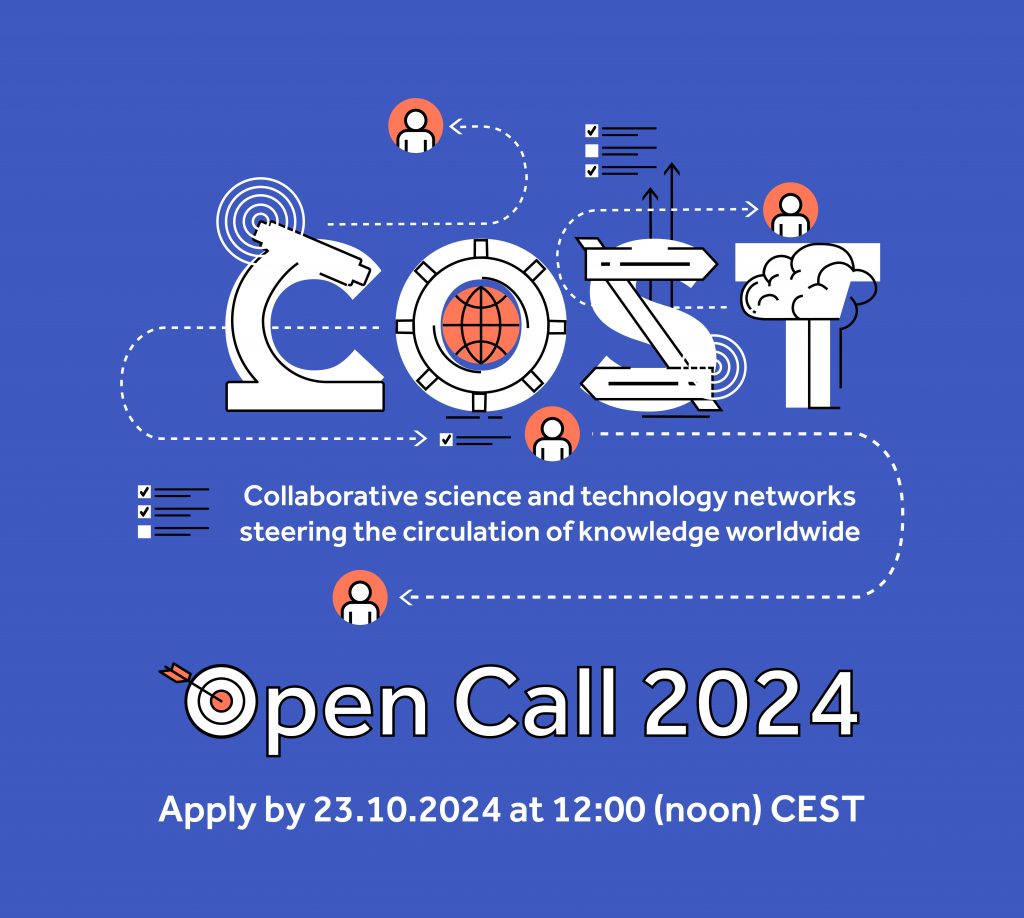A new opportunity to shape the future of science and technology through interdisciplinary collaboration comes from the 2024 Open Call for new COST Action proposals.
The call is set to close on October 23, 2024, at 12.00 (noon) CEST.
COST Actions provide a gateway for dynamic research networks, spanning all scientific and technological domains, including emerging fields. With a bottom-up approach, individuals can propose networks aligned with their interests and ideas.

Funding for COST Actions supports various activities, from networking events to scientific missions and communication efforts. In its inaugural year, a COST Action can access up to €125,000, with an average of €150,000 annually for subsequent years.
These initiatives facilitate collaboration among experts worldwide, fostering professional growth and career advancement.
